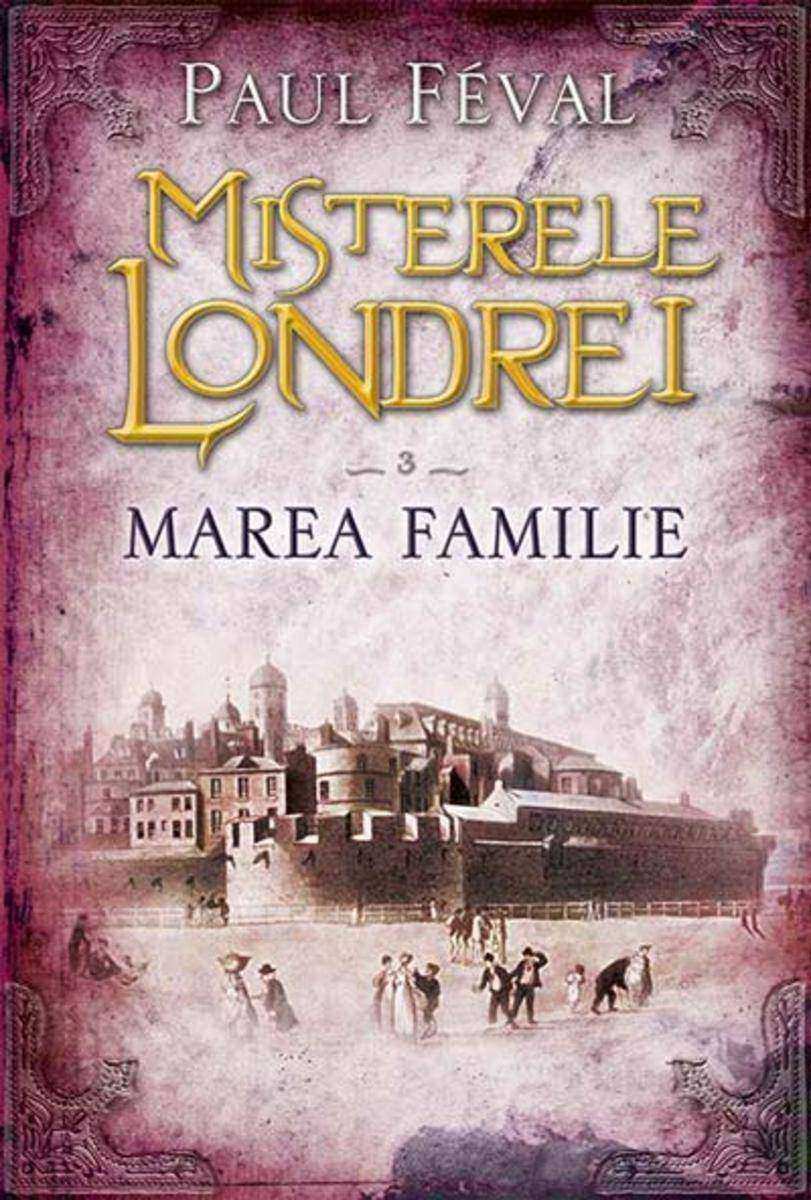
Marea familie
¥42.92
Cine-ar fi crezut c? lumea afacerilor poate fi at?t de fascinant? ?i plin? de dramatism? 350 de milioane de dolari investite ?ntr-un model de automobil plin de imperfec?iuni, f?r? s? fie g?sit m?car un responsabil pentru acest e?ec; ascensiunea spectaculoas? a unei mici companii produc?toare de h?rtie fotografic? p?n? la actualul gigant Xerox, ?nceput? de o m?n? de oameni care ?i-au riscat chiar ?i averea personal? pentru o inova?ie revolu?ionar?; b?t?lia titanic? dus? de Rezerva Federal? a Statelor Unite pentru ap?rarea lirei sterline de atacurile speculatorilor; sunt doar c?teva dintre exemplele ce arat? c?, ?n lumea afacerilor ?i a Wall Streetului, oamenii pot da dovad? fie de geniu, spirit de cooperare ?i ?n?elepciune, fie de ?nc?p???nare ?i lips? de ra?iune, indiferent de miza aflat? ?n joc. Un avertisment c? istoria se poate oric?nd repeta.
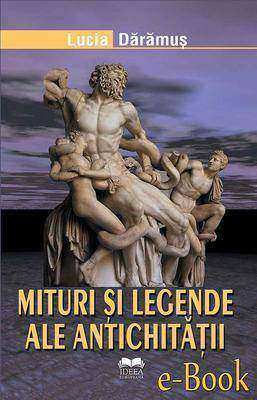
Mituri ?i legende ale antichit??ii
¥54.10
Cea dinti monografie care ofer o imagine cuprinztoare asupra receptrii literaturii romne n Cehia, cartea de fa este o incursiune n diversele etape ale totalitarismului comunist: stalinismul integral, perioada dezgheului, anii aizeci (cu transformrile din jurul Primverii de la Praga), urmai de perioada de normalizare care se ntinde pn la momentul Revoluiei de Catifea. Ineditul acestei lucrri este dat i de explorarea manifestrii unor opere i a unor personaliti literare romneti (precum Mircea Eliade, Constantin Virgil Gheorghiu sau Petru Dumitriu) n zona literar ceh prohibit din anii supui studiului, mai precis n publicaiile din exil i n revistele de tip samizdat. Cititorului i este oferit un tablou amplu asupra autorilor romni receptai cu predilecie de ctre cehi sub comunism i asupra tendinelor manifestate de romnitii cehi (coloana vertebral a procesului receptrii), de criticii literari i de recenzeni. Cartea definete o epoc n istoria raporturilor culturale dintre romni i cehi, dou popoare legate de un trecut adeseori comun i de o prietenie sincer.“ – Profesor dr. Mihai Mitu
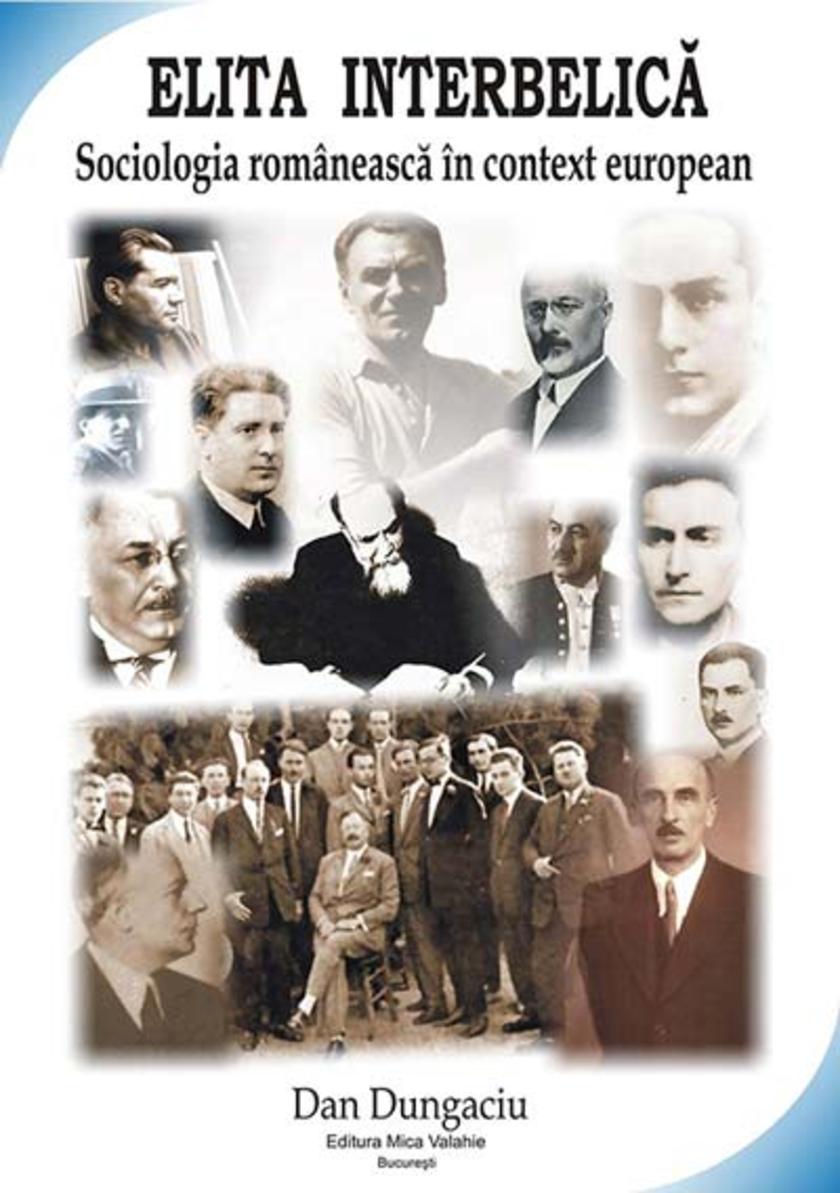
Elita interbelic?: sociologia rom?neasc? ?n context european
¥90.84
Pe 1 mai 1915, c?nd Primul R?zboi Mondial intra ?n cea de a zecea sa lun?, un transoceanic de linie luxos, la fel de bogat decorat ca un conac englezesc de ?ar?, pleca din New York cu destina?ia Liverpool, av?nd la bord un num?r record de copii. ?n r?ndurile pasagerilor domnea o surprinz?toare stare de bun? dispozi?ie, de?i Germania declarase c? apele din jurul Marii Britanii constituiau o zon? de r?zboi. Luni de zile, submarinele germane sem?naser? teroarea ?n Atlanticul de Nord. Dar Lusitania era unul dintre marile transatlantice ale epocii, cel mai rapid vapor de linie aflat ?n serviciu, iar c?pitanul ei, William Thomas Turner, avea o ?ncredere de nestr?mutat ?n regulile stricte ale r?zboiului purtat de gentlemani, care feriser?, vreme de un secol, vasele civile de orice atac. Este o poveste pe care mul?i dintre noi cred c? o cunosc, f?r? a o ?ti cu adev?rat, iar Erik Larson ne-o readuce ?n aten?ie plin? de suspans, schimb?nd rolurile ?ntre v?n?tor ?i v?nat, ?n timp ce descrie un tablou mai general al Americii la apogeul Erei Progresului. Plin? de str?lucire ?i de emo?ie, Siajul mor?ii aduce la via?? o distribu?ie de personaje evocatoare, de la faimosul librar din Boston Charles Lauriat, la pioniera din domeniul arhitecturii Theodate Pope ?i la pre?edintele Woodrow Wilson, un om sufocat de suferin?? ?i ?ngrozit de perspectiva unui r?zboi mondial. Siajul mor?ii surprinde drama pur? ?i puterea emo?ional? a unui dezastru ale c?rui detalii intime ?i ?n?eles real riscau s? r?m?n? pierdute ?n negurile istoriei.
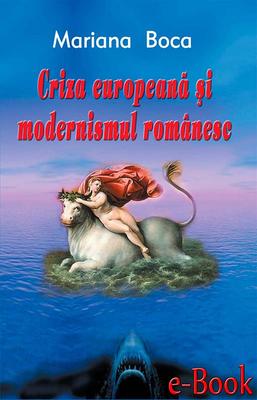
Criza european? ?i modernismul rom?nesc
¥38.62
O carte spectaculoas?, care ??i asum? nu pu?ine riscuri, intr?nd pe terenurile pu?in explorate ale romanului. Cercetarea ?n care ne-am angajat este analitic? ?i speculativ?, o ipotez? pe care ne-o ?nchipuim ?n anticamera adev?rurilor simple ?i general-consim?ite despre romanul secolului XX, fiindc? aceste adev?ruri sunt a?teptate ?nc? spre a fi spuse. Istoriile sistematice, studiile exhaustive despre romanul secolului abia ?ncheiat lipsesc deocamdat?. Este ?i prima dificultate majora pe care a trebuit s? o ignoram pur ?i simplu. Risc?m propria noastr? ipoteza ?ntr-un spa?iu ?nc? insuficient ordonat ?i tocmai de aceea ispititor pentru orice c?l?torie critic?.
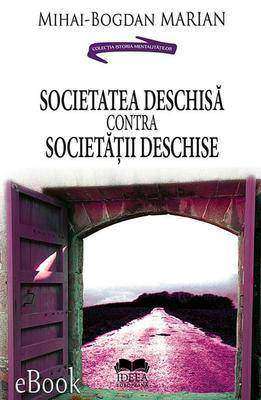
Societatea deschis? contra Societ??ii deschise
¥51.85
Cei ce sus?in c? tr?im ?ntr-o er? a comunic?rii par s? confunde dezvoltarea telecomunica?iilor cu progresul comunic?rii interumane. Nu este c?tu?i de pu?in sigur c? suntem ast?zi mai capabili dec?t ?n trecut de solidaritate afectiv? cu semenii, de ?mp?rt??ire de tr?iri intime, de prietenie ?i dragoste. Poate chiar dimpotriv?. Ceea ce ?inea ?n trecut de normalitatea vie?ii de fiecare zi ?i, ca atare, nu mobiliza ?n mod special aten?ia celor implica?i, a devenit ast?zi obiect de analiz? tocmai pentru c? nu se mai produce spontan, ci necesit? un efort con?tient, inclusiv de natura teoretic-investigativ?.Cunoa?terea principiilor ?i a mecanismelor comunic?rii interpersonale a devenit indispensabil? pentru ameliorarea raporturilor dintre oameni ?i a ?ncetat s? mai fie numai o problem? a speciali?tilor. Dac? ?n trecut oamenii comunicau spontan, ?n felul ?n care f?cea proza ?burghezul gentilom“, ast?zi suntem tot mai mult ?n situa?ia unui domn Jourdain care, pentru a se apropia de semenii s?i, are nevoie de un ghid. Acestui imperativ ?ncearc? s?-i r?spund?, ?n felul s?u, ?i lucrarea de fa??.
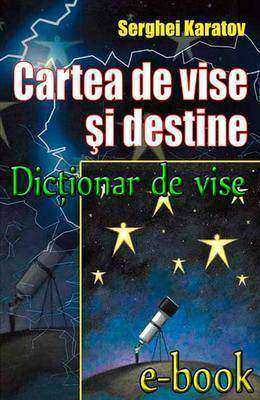
Dic?ionar de vise. Cartea de vise ?i destine
¥46.36
O analiz? metodic? ?i patima?? a cumplitei dictaturi ro?ii de care a avut parte Rom?nia. Atitudinea elitelor fa?? de tiran ?i fa?? de clica sa. ?n ce masur? suntem vinova?i? La?itatea este oare una dintre caracteristicile definitorii ale c?rturarului rom?n? La aceste ?i multe alte ?ntreb?ri r?spunde profesorul de filosofie, Ion Iano?i – un veritabil model european. Cartea e destinat? studen?ilor, elevilor, profesorilor, precum ?i publicului larg de cititori.
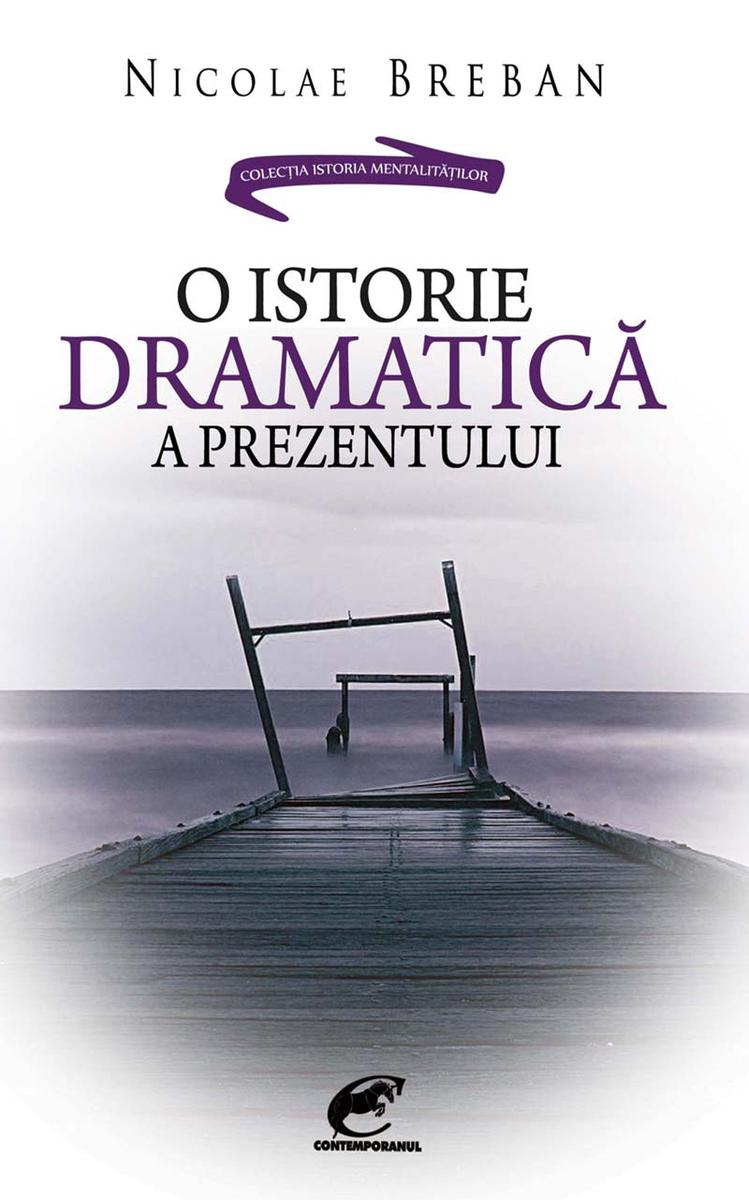
O istorie dramatic? a prezentului
¥80.93
Demersul Antoanetei Olteanu, reputat? traduc?toare de limba rus? ?iexpert? ?n istoria cultural? a Rusiei, se distinge at?t prin calitatea informa?iilor, adesea inedite, c?t ?i prin compozi?ia complex?, care ?mbin? viziunea sintetic? cu o perspectiv? transcultural? exersat?. Cartea se recomand? de la sine at?t cititorului profesionist, care g?se?te aici o serie de date altfel greu accesibile, c?t ?i celui interesat de istoria ?i cultura Europei ?n ansamblu. Dup? cum anun?? ?i subtitlul, lucrarea reconstituie o istorie cultural? a secolului al XIX-lea, realiz?nd, ?n fapt, o fresc? a uneia dintre cele mai captivante perioade din istoria Rusiei, cea imperial?. Datele prezentate acoper? practic toate Aspectele vie?ii politice, sociale, economice ?i culturale ale acestui interval de timp, marcat at?t de aura ?arilor, c?t ?i de nenum?ratele revolte populare. Tabloul evenimentelor majore este ?ntregit cu minu?ioase inventare de titluri nobiliare, cu date economice consemnate cu acribie, cu o expunere vie a panoramei cutumelor sociale, familiale ?i religioase, merg?nd de la modalit??ile de confec?ionare a juc?riilor sau a bijuteriilor p?n? la istorii ale ceaiului sau vodcii. Atmosfera epocii cap?t? un contur des?v?r?it prin citarea unor fragmente din lucr?ri ?tiin?ifice de referin??, din jurnalele de c?l?torie ?i din publicistica vremii, dar ?i din operele marilor scriitori ai vremii, ca Dostoievski, Gogol ?i Tolstoi. Se contureaz?, astfel, o imagine neconven?ional? a Rusiei, o na?iune confruntat? permanent cu tensiunea unei alegeri fundamentale, care pune ?n opozi?ie modelul str?in ?i inegalabila for?? intern?. Autoarei ?i revine meritul de a fi surprins aspectele esen?iale ale acestei tensiuni, cu ample ecouri ?n perioadamodern? ?i cu evidente efecte asupra mentalit??ii contemporane.
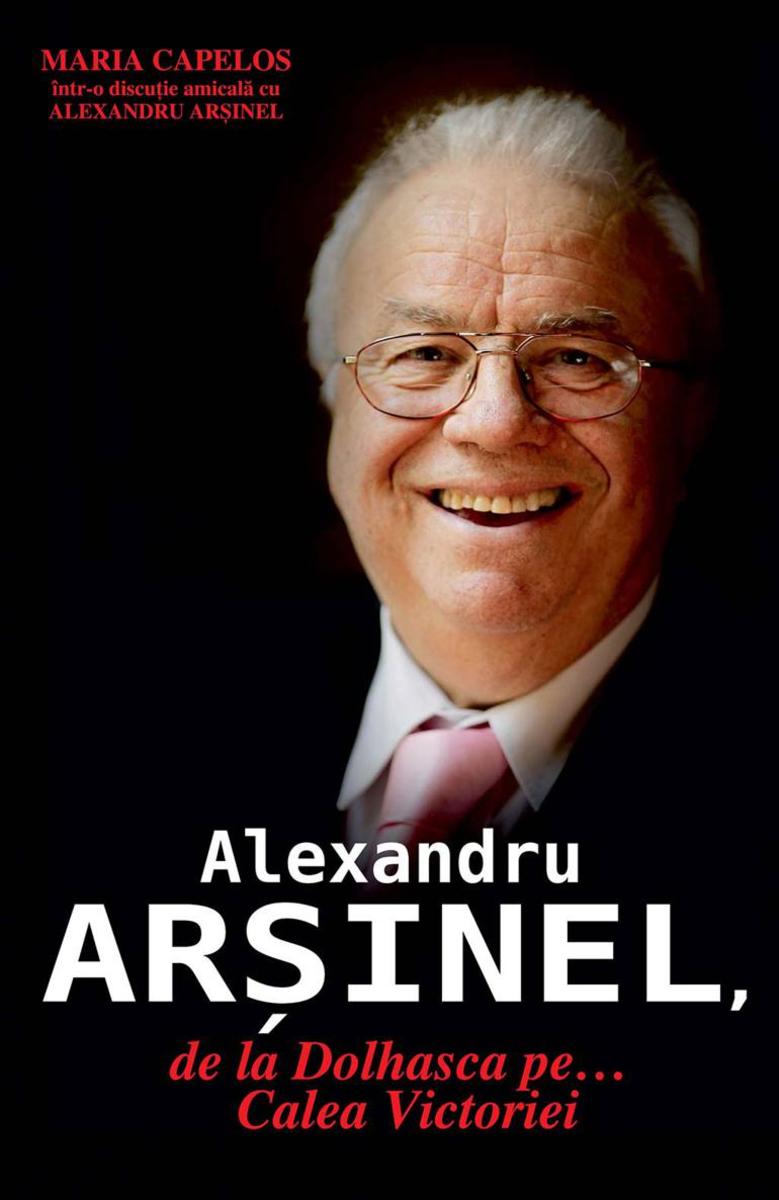
Alexandru Ar?inel, de la Dolhasca pe... Calea Victoriei
¥65.32
Volumul Dic?iunea ideilor, apar?in?nd profesorului Mircea Martin de la Facultateade Litere a Universit??ii Bucure?ti, este o contribu?ie valoroas? ?i original? la analiza unui raport extrem de important ?n teoriile socio-umane ale cunoa?terii, anume raportul dintre natural, artificial ?i autentic, aplicat asupra discursului metaliterar. Cartea se constituie ca o ?nsumare de analize a acestui raport ?n opera unor teoreticieni ai fenomenului literar rom?ni ?i str?ini: Tudor Vianu, G. C?linescu, B. Fondane, Matei C?linescu, Marcel Raymond, Roland Barthes, Carlos Bouso?o, Jaap Linnvelt. Departe de a fi o simpl? ?nsumare de analize aplicate, cartea este de fapt o critic? aconceptelor folosite deopotriv? de cercetarea antropologic?, cea estetic? ?i cea pur literar? ?i o contribu?ie esen?ial? la un proces de inserare ?nmodernitate a culturii rom?ne. Contribu?iile teoreticienilor rom?ni sunt v?zute ?n raportul lor de originalitate-sincronicitate cu cele ale cercet?torilor str?ini, ?nscriindu-se ?ntr-un proces de organicitate care implic? categorii culturale largi.
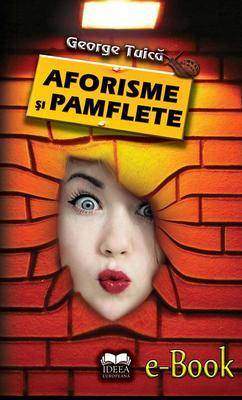
Aforisme ?i pamflete
¥85.05
Cititorul va redescoperi, citind aceast? carte, istoriile, uneori-adeseori, scandaloase ale celebrelor cupluri bucure?tene, inclusiv c?teva din pove?tile de dragoste care s-au legat ?ntre domni?ele noastre ?i str?inii ajun?i la Bucure?ti, fie ?n calitate de diploma?i, fie de militari. Nu lipsesc din aceste pagini nici arti?tii din galeria ?aman?ilor magnifici“ ai Bucure?tilor de odinioar?. Un exemplu este povestea rivalit??ii Eminescu – Caragiale ?n ceea ce-o prive?te pe Veronica Micle sau povestea dublei pasiuni a arhitectului Alexandru Orascu – pentru so?ia sa Elena Marcovici ?i pentru ora?ul natal pe care visa s?-l ridice din cenu?? ?i ruine. Un Bucure?ti al Afroditei ?i al lui Eros (cum ?i mergea vestea ?nca din veacul fanariot, potrivit calug?rului grec Daponte), nu era de ?nchipuit f?r? evocarea vestitelor baluri din palatul ?u?u ?i nici f?r? evocarea cuplului Grigore ?i Irina ?u?u, arbitri ai elegan?ei, ospitalit??ii ?i curtoaziei specifice secolului al XIX-lea.
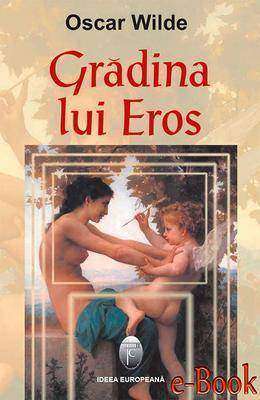
Gr?dina lui Eros
¥46.36
Cititorul va g?si ?n cartea mea un Bucure?ti al scriitorilor, un Bucure?ti al oamenilor politici ?i al gazetarilor, un Bucure?ti al dueli?tilor de ocazie ?i al fan?ilor de salon, al boierilor risipitori ?i sibari?i, al briganzilor de felul unor Tunsu, Grozea sau Iancu Jianu, al domnitorilor cu sau f?r? noroc, al pasiunilor amoroase, al dramelor ?i comediilor vie?ii, o adev?rat? surs? de subiecte pentru scenari?tii care vor s?-?i ?ncerce norocul ?n produc?ia unor seriale TV, ca s? nu spun ?telenovele“. Exist? oameni care merit? aminti?i cu p?r?ile lor bune ?i rele, domnitori ca Mircea Ciobanul, Matei Basarab, Br?ncoveanu, Mavrocorda?ii, Nicolae Mavrogheni, Ioan Gheorghe Caragea, Gheoghe Bibescu, Barbu ?tirbei, Alexandru Ioan Cuza, Carol I sau boieri ca Mihai Cantacuzino, Kre?ule?tii, V?c?re?tii, logof?tul Dudescu, Ion C?mpineanu, Ion Ghica, Nicolae B?lcescu, arhitec?i ca Alexandru Or?scu ?i al?ii. Am pornit ?n scrierea acestei c?r?i av?nd ?n fata ochilor r?ndurile scriitorului Mircea Constantinescu, foarte inspirat atunci c?nd afirma ?n romanul sau documentar ?C?nd toca la Radu Voda“ ca ?Bucure?tii nasc pove?ti de amor ca o mam? eroin?“.
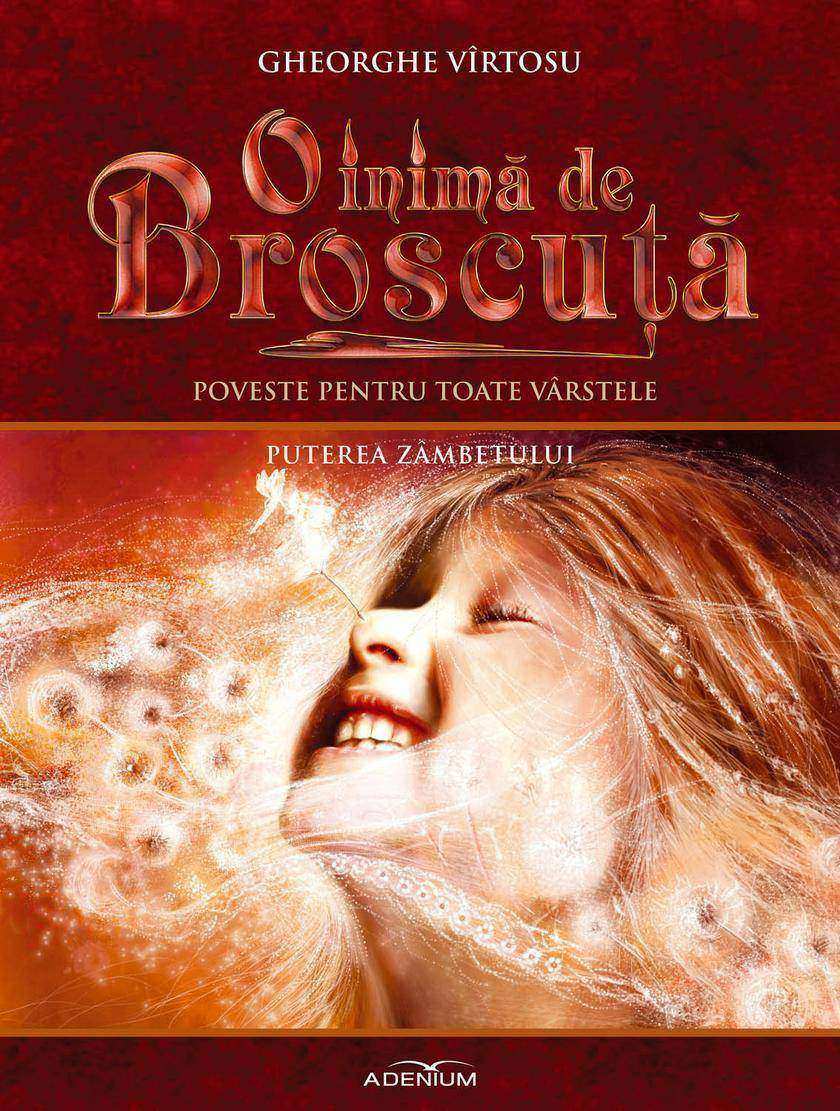
O inim? de Broscu??. Volumul X. Puterea z?mbetului
¥46.60
Volumul Sublimul tr?d?rii reprezint? o incursiune ?n lumea ?multidimensional?“ a crea?iei teatrale. Convins de existen?a unor straturi rarefiate ale spiritului, ?n care reprezenta?ia a fost h?r?zit? s? existe, autorul se ?ndep?rteaz? de orice interpretare ?vulgar?“, la prima m?n?, a artei scenice. F?c?ndu-se apel la teorii ale esteticii teatrale, dar ?i ale filosofiei, psihanalizei, exegezei ?i criticii literare, ne este relevat un univers artistic complicat, complex, predispus unei analize profunde. Astfel, locul care ?i este destinat spectatorului nu mai este acela de privitor pasiv, ci de partener al actorilor.?Oper?nd alegerea de sine“, spectatorul iese din plasa esteticului nu pentru a-i desfide rostul, ci pentru a se proiecta ?n centrul ac?iunii scenice, ?ntr-un loc ?n care ??i poate afirma prezen?a. Actul ?lecturii“ teatrului implic? ?ndatoriri egale cu cele din spa?iul public, for??ndu-l pe insul aflat ?n sala de spectacol s? faca o eschiva printre imperativele vie?ii, consider?nd interpretarea ca circumscriere concret? ?n ?legea universal?“ a eticului. Doar ?n acest fel, spectatorul poate accepta responsabilit??i legate de ceea ce i se ?nt?mpl?, atent la (?i preocupat de) via?a sa superioar?, spiritual?.“
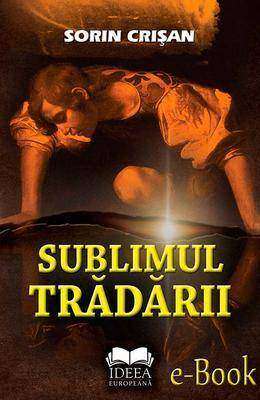
Sublimul tr?d?rii
¥61.83
Apariia n 1948 a primei reviste romneti n exil, la Paris, intitulat de creatorii ei, Virgil Ierunca i Mircea Eliade, Luceafrul“, a venit dup ce tvlugul sovietic reuise s anihileze n ar Romnia politic, iar pe cea spiritual parial, ducnd, dup cum spunea Julien Benda, la trdarea crturarilor. Reacia la aceast stare a venit, aa dup cum era i firesc, din partea unor intelectuali exilai i cu precdere a lui Virgil Ierunca, unul dintre cei doi componeni a ceea ce putem denumi instituia Lovinescu – Ierunca“. Acest cuplu a tiut s prezerve valorile romneti i nu numai pe cele spirituale, s anime, s conving, s scoat din inerie pe acei intelectuali romni exilai care i cutau menirea n acea lume care, pe atunci, nu oferea, ca mai trziu, linitea interioar att de necesar creaiei. Ierunca a fost deseori cel care l-a mpins pe Mircea Eliade s nu rmn ancorat ntr-o literatur de mrturii, ci ntr-o via activ de creaie, de cutri. Volumul de fa, care ne restituie“ Luceafrul“, se datoreaz meritului deosebit al autorilor Mihaela Albu i Dan Anghelescu.Studiul efectuat cu ntreaga dragoste i acribie a cercetatorului ne dezvluie, cu rafinament, ndeosebi o cunoatere aprofundat a simirilor celor care, cu 60 de ani n urm, nu abdicaser de la datorie. Impresioneaz nu numai relatarea faptic, dar i bogia cu care cei doi autori pun n relaie imensul lor bagaj cultural cu ceea ce au produs cu o jumtate de secol n urm autorii Luceafrului“.“ (Dinu Zamfirescu)
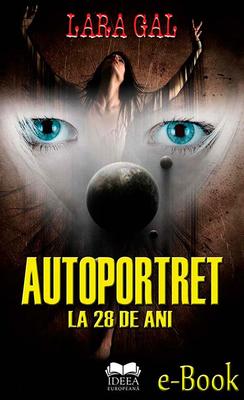
Autoportret la 28 de ani
¥54.10
Avangardismul rom?nesc r?m?ne a fi unul dintre curentele literare cele mai controversate ?i, ?n ultima instanta – ne demonstreaza aceasta monografie – cele mai putin cunoscute. Monografia abunda ?n informa?ii, aspecte, ?nt?mpl?ri, evenimente, mai pu?in sau deloc cunoscute. Cartea se adreseaz? elevilor, studen?ilor, precum ?i publicului larg de cititori.
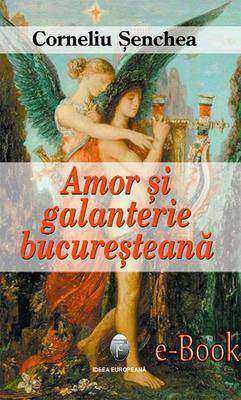
Amor ?i galanterie bucure?tean?
¥61.83
Un periplu documentat prin lumea artelor plastice contemporane, un model de analiz? a fenomenului plastic actual, extrem de viu ?i incitant, ba chiar provoc?tor, ?n ciuda multiplelor probleme ridicate de tranzi?ia autohton?.
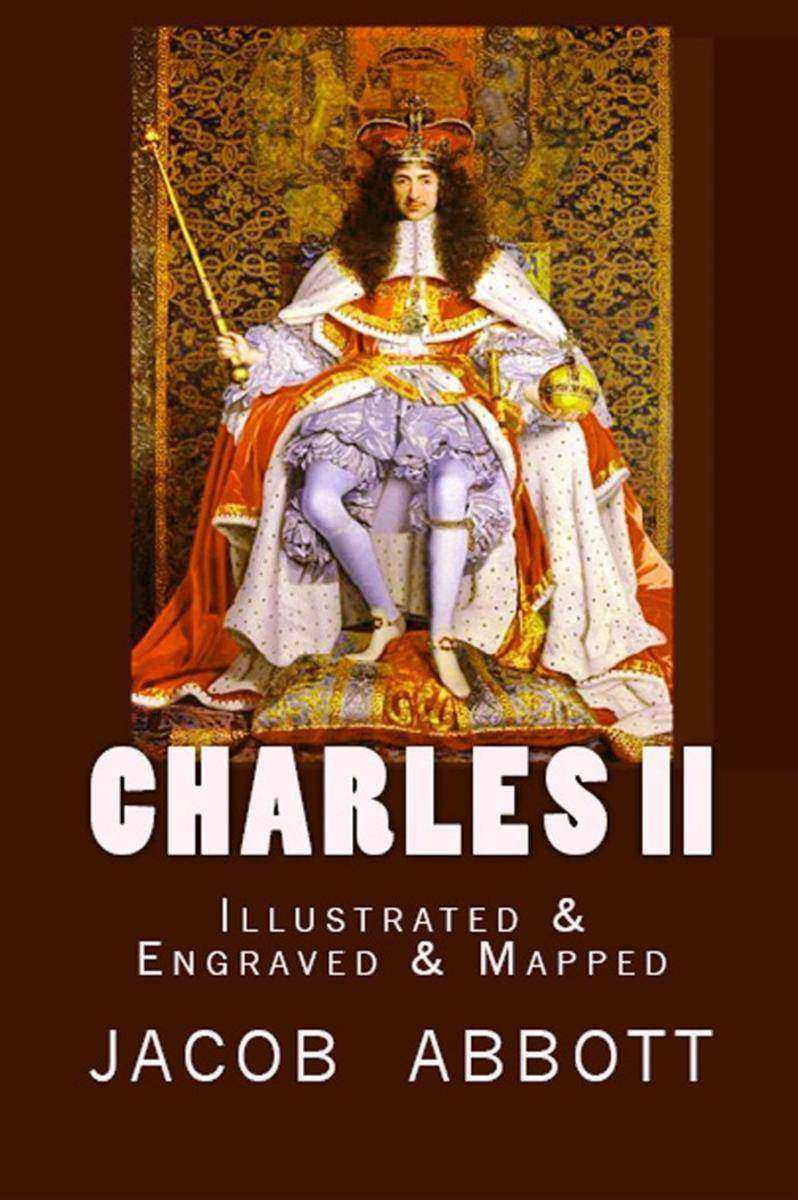
Charles II
¥18.56
KING CHARLES THE SECOND was the son and successor of King Charles the First. These two are the only kings of the name of Charles that have appea-red, thus far, in the line of English sovereigns. Nor is it very probable that there will soon be another. The reigns of both these monarchs were stained and tarnished with many vices and crimes, and darkened by national disasters of every kind, and the name is thus connected with so many painful associations in the minds of men, that it seems to have been dropped, by common consent, in all branches of the royal family.??The reign of Charles the First, as will be seen by the history of his life in this series, was characterized by a long and obstinate contest between the king and the people, which brought on, at last, a civil war, in which the king was defeated and taken prisoner, and in the end beheaded on a block, before one of his own pala-ces. During the last stages of this terrible contest, and before Charles was himself taken prisoner, he was, as it were, a fugitive and an outlaw in his own dominions. His wife and family were scattered in various foreign lands, his cities and castles were in the hands of his enemies, and his oldest son, the prince Charles, was the object of special hostility. The prince incurred, therefore, a great many dangers, and suffered many heavy calamities in his early years. He lived to see these calamities pass away, and, after they were gone, he enjoyed, so far as his own personal safety and welfare were concerned, a tranquil and prosperous life. The storm, however, of trial and suffering which enveloped the evening of his father's days, darkened the morning of his own. ??The life of Charles the First was a river rising gently, from quiet springs, in a scene of verdure and sunshine, and flowing gradually into rugged and gloomy regions, where at last it falls into a terrific abyss, enveloped in darkness and storms. That of Charles the Second, on the other hand, rising in the wild and rugged mountains where the parent stream was engulfed, commences its course by leaping frightfully from precipice to precipice, with turbid and foaming waters, but emerges at last into a smooth and smiling land, and flows through it prosperously to the sea.
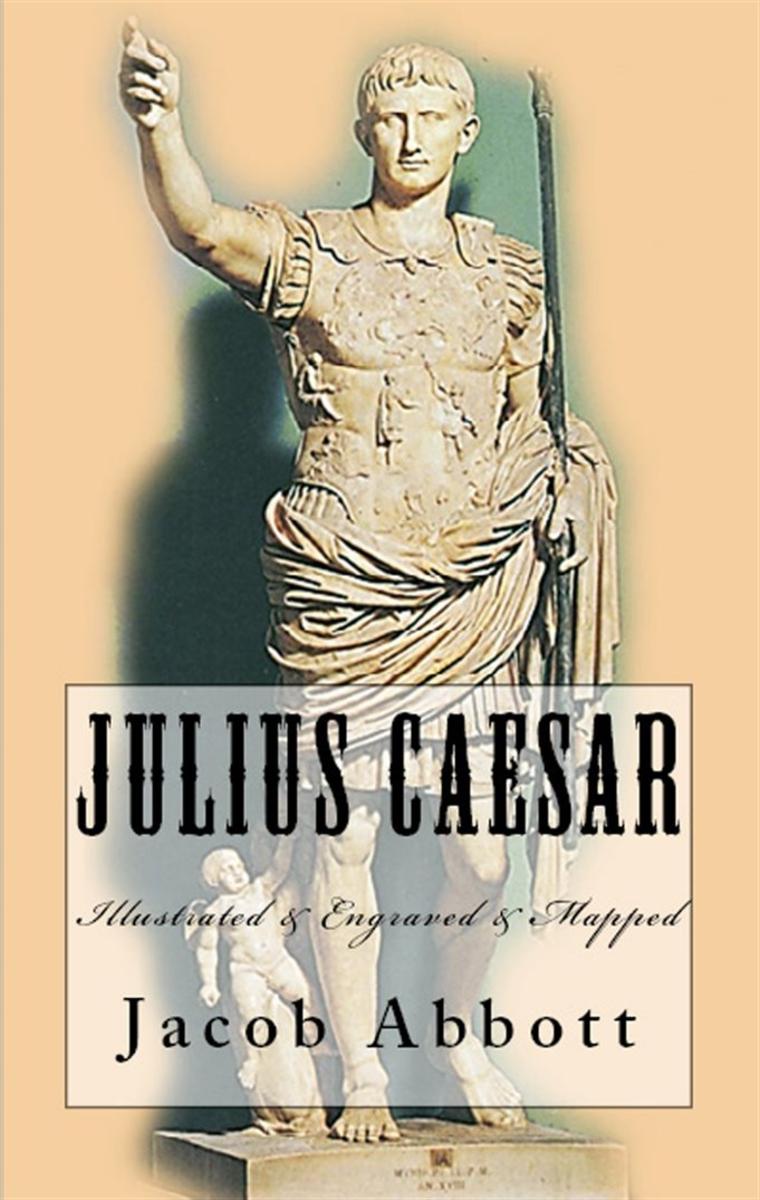
Julius Caesar
¥27.88
THERE were three great European nations in ancient days, each of which furnished history with a hero: the Greeks, the Carthaginians, and the Romans.??Alexander was the hero of the Greeks. He was King of Macedon, a country lying north of Greece proper. He headed an army of his countrymen, and made an excursion for conquest and glory into Asia. He made himself master of all that quarter of the globe, and reigned over it in Babylon, till he brought himself to an early grave by the excesses into which his boundless prosperity allured him. His fame rests on his triumphant success in building up for himself so vast an empire, and the admiration which his career has always excited among mankind is heightened by the consideration of his youth, and of the noble and generous impulses which strongly marked his character.??The ROMAN hero was CAESAR. He was born just one hundred years before the Christian era. His renown does not depend, like that of Alexander, on foreign conquests, nor, like that of Hannibal, on the terrible energy of his aggressions upon foreign foes, but upon his protracted and dreadful contests with, and ultimate triumphs over, his rivals and competitors at home.
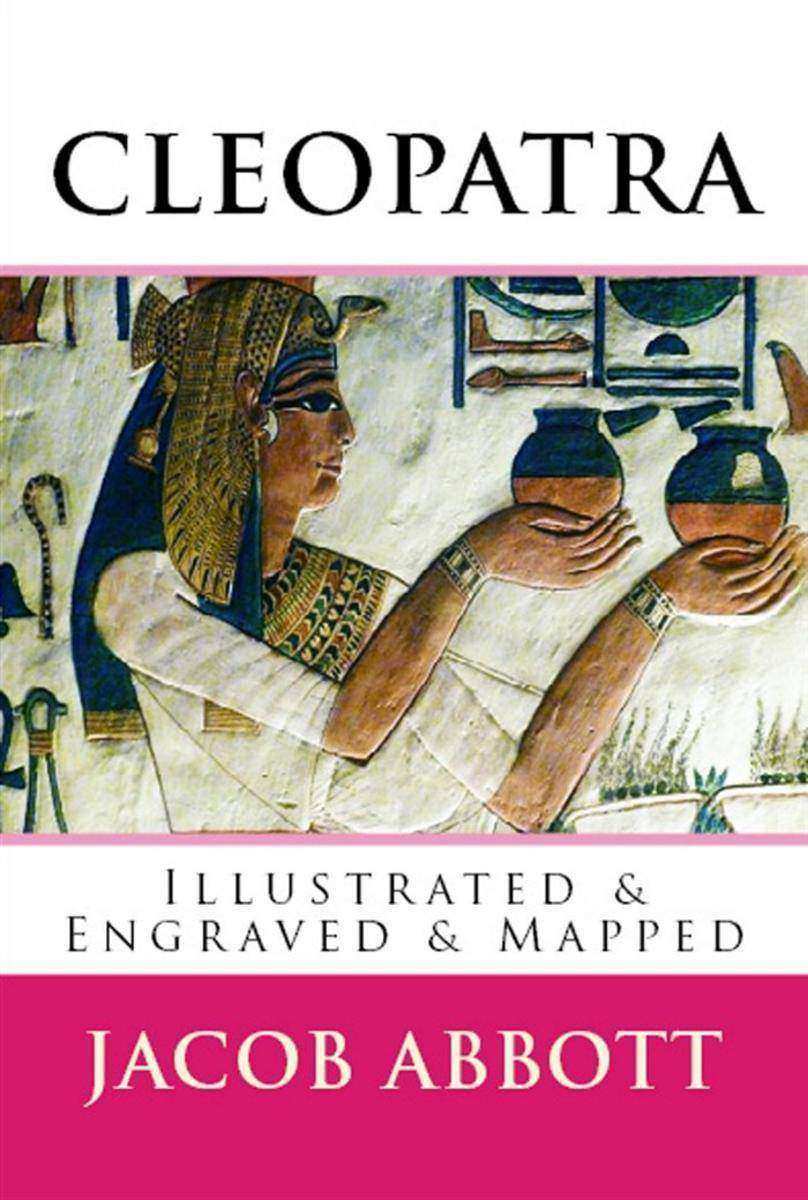
Cleopatra
¥18.56
THE story of Cleopatra is a story of crime. It is a narrative of the course and the consequences of unlawful love. In her strange and romantic history we see this passion portrayed with the most complete and graphic fidelity in all its influences and effects; its uncontrollable impulses, its intoxicating joys, its reckless and mad career, and the dreadful remorse and ultimate despair and ruin in which it always and inevitably ends.??Cleopatra was by birth an Egyptian; by ancestry and descent she was a Greek. Thus, while Alexandria and the delta of the Nile formed the scene of the most im-portant events and incidents of her history, it was the blood of Macedon which flowed in her veins. Her character and action are marked by the genius, the courage, the originality, and the impulsiveness pertaining to the stock from which she sprung. The events of her history, on the other hand, and the peculiar character of her adventures, her sufferings, and her sins, were determined by the circumstances with which she was surrounded, and the influences which were brought to bear upon her in the soft and voluptuous clime where the scenes of her early life were laid..??Egypt has always been considered as physically the most remarkable country on the globe. It is a long and narrow valley of verdure and fruitfulness, completely insulated from the rest of the habitable world. It is more completely insulated, in fact, than any literal island could be, inasmuch as deserts are more impassable than seas. The very existence of Egypt is a most extraordinary phenomenon. If we could but soar with the wings of an eagle into the air, and look down upon the scene, so as to observe the operation of that grand and yet simple process by which this long and wonderful valley, teeming so profusely with animal and vegetable life, has been formed, and is annually revivified and renewed, in the midst of surrounding wastes of silence, desolation, and death, we should gaze upon it with never-ceasing admiration and pleasure. We have not the wings of the eagle, but the generalizations of science furnish us with a sort of substitute for them. The long series of patient, careful, and sagacious observations, which have been continued now for two thousand years, bring us results, by means of which, through our powers of mental conception, we may take a comprehensive survey of the whole scene, analo-gous, in some respects, to that which direct and actual vision would afford us, if we could look down upon it from the eagle's point of view. It is, however, so-mewhat humiliating to our pride of intellect to reflect that long-continued philosophical investigations and learned scientific research are, in such a case as this, after all, in some sense, only a sort of substitute for wings. A human mind connected with a pair of eagle's wings would have solved the mystery of Egypt in a week; whereas science, philosophy, and research, confined to the surface of the ground, have been occupied for twenty centuries in accomplishing the undertaking.
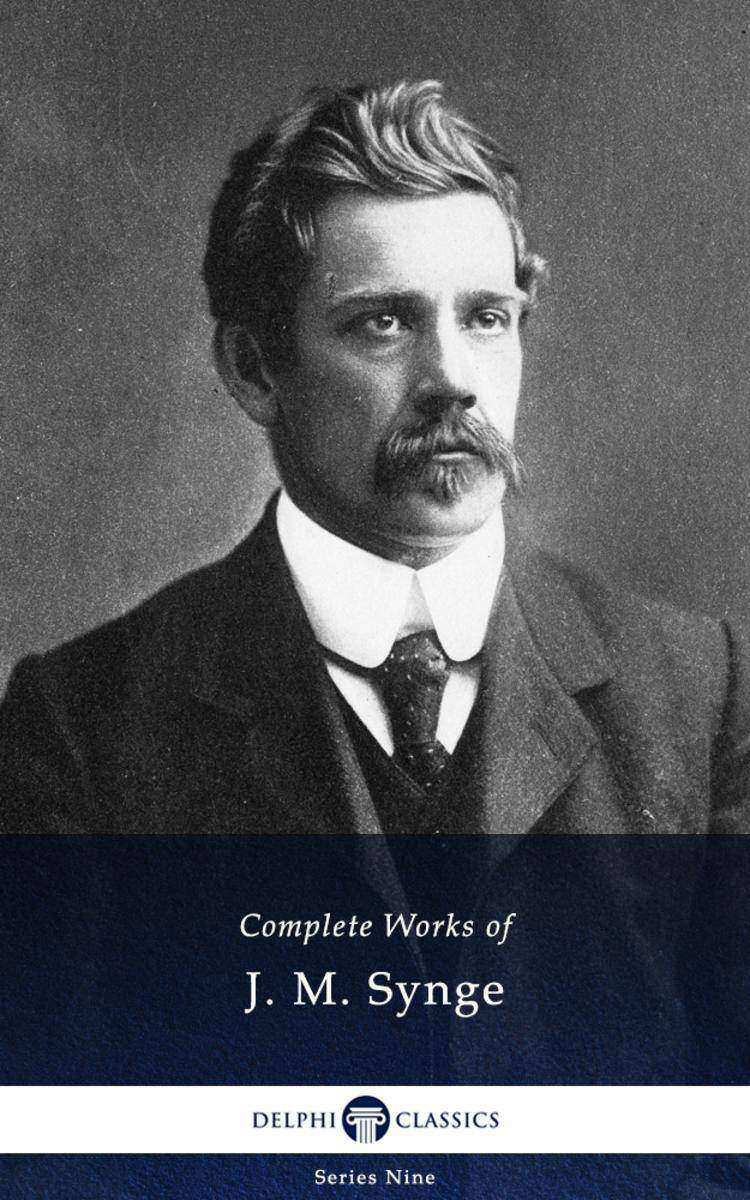
Delphi Complete Works of J. M. Synge (Illustrated)
¥24.44
The playwright J. M. Synge was a key figure in the Irish Literary Revival and was one of the co-founders of the Abbey Theatre. Today he is best known for his controversial play ‘The Playboy of the Western World’, which caused riots in Dublin during its opening run. Synge's writings are chiefly concerned with the world of the Roman Catholic peasants of rural Ireland and with what he saw as the essential paganism of their world view. He was a poetic dramatist of great power, whose modern plays are celebrated for their sophisticated craftsmanship. For the first time in digital publishing, this eBook presents Synge’s complete works, with numerous illustrations, rare texts, informative introductions and the usual Delphi bonus material. (Version 1) * Beautifully illustrated with images relating to Synge’s life and works* Concise introductions to the plays* All 6 plays, with individual contents tables* Images of how the books were first published, giving your eReader a taste of the original texts* Excellent formatting of the texts* Rare poetry available in no other collection* Includes Synge’s prose, featuring many essays and reviews– available in no other collection* Features two biographies, including Yeats’ seminal work ‘Synge and the Ireland of His Time’ – discover Synge’s literary life* Scholarly ordering of texts into chronological order and literary genres Please visit www.delphiclassics.com to browse through our range of exciting titles CONTENTS: The PlaysIn the Shadow of the GlenRiders to the SeaThe Well of the SaintsThe Playboy of the Western WorldThe Tinker’s WeddingDeirdre of the Sorrows The Poetry CollectionsCollected Poems The ProseThe Aran IslandsIn Wicklow and West KerryMiscellaneous Essays and Reviews The BiographiesSynge and the Ireland of His Time by W. B. YeatsBrief Biography of John Millington Synge by William Kirkpatrick Magee Please visit www.delphiclassics.com to browse through our range of exciting titles or to purchase this eBook as a Parts Edition of individual eBooks

The Micro Budget Filmmaking Collection
¥16.27
The Best Selling Indie film making manuals. The books On Low Budget Film Making, On, Writing A Low Budget Screenplay and On Making A Found Footage Film all in one book. Featuring dozen of interviews with a whole new generation of micro budget film makers along with hands on advice on every aspect of film making in this new DSLR age. This set of books will take you from crafting a low budget screenplay straight through to post production. There is no one better on earth to learn the ins and outs of micro budget filmmaking than those who are in the trenches doing it on a day to day basis. You will pick up so much useful information from the interviews done with these filmmakers in On Low Budget Filmmaking. People for decades have said if you want to get started in the film industry you need to write a low budget screenplay. Great, but no one bothered to tell you how to do this. Well, I have. In my book On Writing a Low Budget Screenplay, I teach you the basic rules and concepts to aid you in crafting a low to micro budget screenplay. I believe that a quality screenplay can to crafted with a budget of fewer than ten thousand dollars in mind. This book is not only going to teach you to focus on the budget but to create a compelling character. This book will make you a better screenwriter. With the rules, you learn you will be able to craft a strong screenplay at any budget level. The Found Footage film is never going away. I realized this a while a go so I spent over a year studying these films and interview dozens of film makers who have made Found Footage films, including the guys behind Found Footage 3D, and tried to put the lessons that they learned all into one book. If you wish to make a Found Footage film then my book On Making A Found Footage Film is a must read. You can enjoy all three books in one collection.
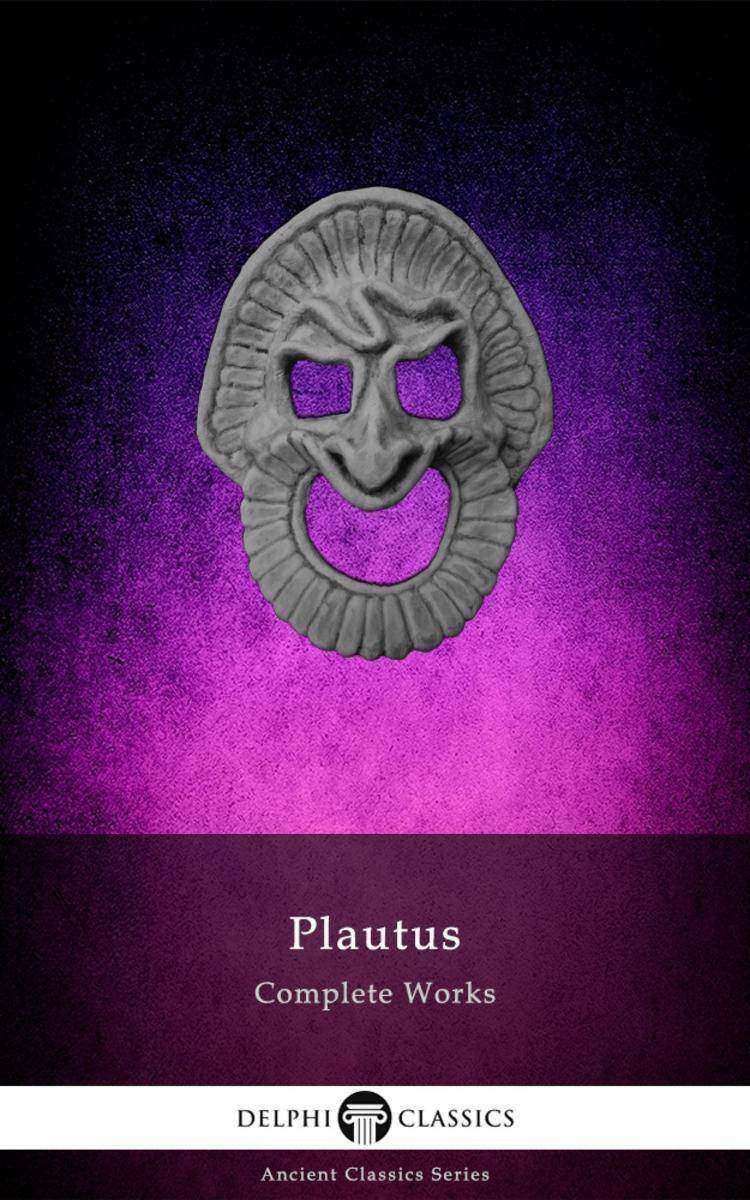
Delphi Complete Works of Plautus (Illustrated)
¥24.44
The Roman playwright Plautus wrote comedies that are the earliest Latin literary texts to have survived in their entirety. Loosely adapted from lost Greek plays, the works of Plautus helped establish a truly Roman drama in the Latin language for the first time. Delphi’s Ancient Classics series provides eReaders with the wisdom of the Classical world, with both English translations and the original Latin texts. This comprehensive eBook presents Plautus’ complete extant works, with relevant illustrations, informative introductions and the usual Delphi bonus material. (Version 1) * Beautifully illustrated with images relating to Plautus’ life and works* Features the complete extant works of Plautus, in both English translation and the original Latin* All 20 extant plays* Concise introductions to the plays* Features translations by Henry Thomas Riley * Excellent formatting of the texts* Easily locate the acts you want to read with individual contents tables* Includes Plautus’ rare plays, first time in digital print* Features a bonus biography – discover Plautus’ ancient world* Scholarly ordering of texts into chronological order and literary genres Please visit www.delphiclassics.com to explore our range of Ancient Classics titles or buy the entire series as a Super Set CONTENTS: The TranslationsAMPHITRYONASINARIAAULULARIABACCHIDESCAPTIVICASINACISTELLARIACURCULIOEPIDICUSMENAECHMIMERCATORMILES GLORIOSUSMOSTELLARIAPERSAPOENULUSPSEUDOLUSRUDENSSTICHUSTRINUMMUSTRUCULENTUS The Latin TextsLIST OF LATIN TEXTS The BiographyINTRODUCTION TO PLAUTUS by Paul Nixon Please visit www.delphiclassics.com to browse through our range of exciting titles

Play Easily on Piano and Keyboards
¥92.62
Every year few millions of Americans start to study music. After one year 80% of them stop this studying. They are not talented enough? But what they are studying for whole year long. All music theory can be delivered for 30 minutes. In this book we deliver music theory in historical and logic succession demonstrating it on examples for playing piano and keyboards. This book really helps you.Every year few millions of Americans start to study music. After one year 80% of them stop this studying. They are not talented enough? But what they are studying for whole year long. All music theory can be delivered for 30 minutes. In this book we deliver music theory in historical and logic succession demonstrating it on examples for playing piano and keyboards. This book really helps you.




 购物车
购物车 个人中心
个人中心



